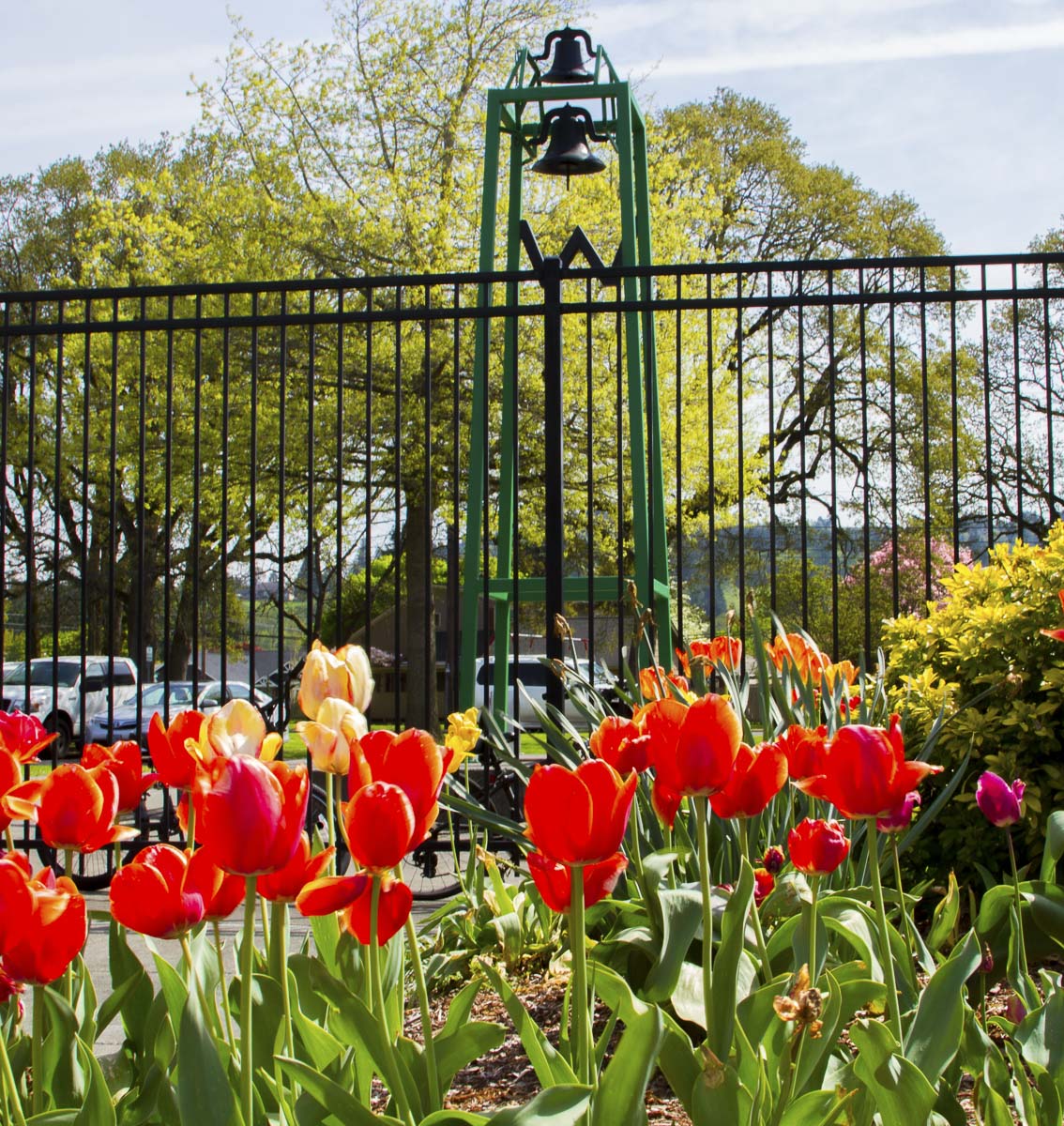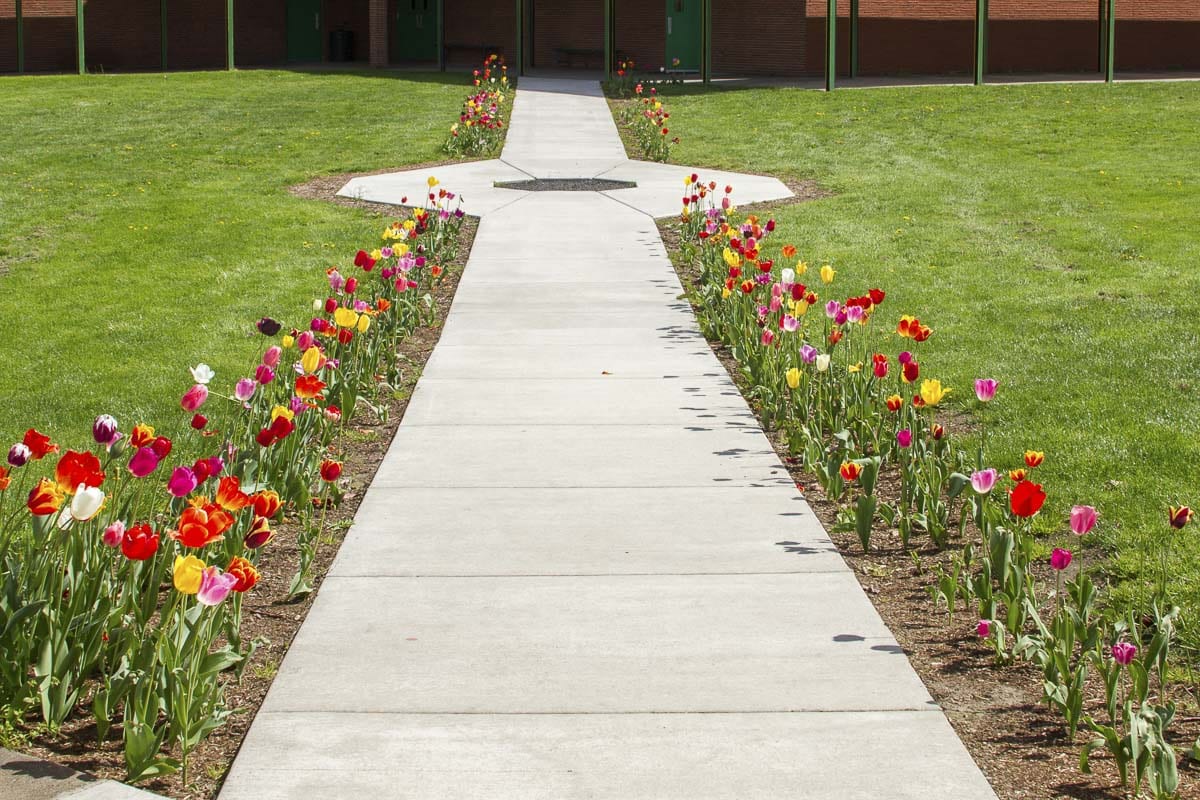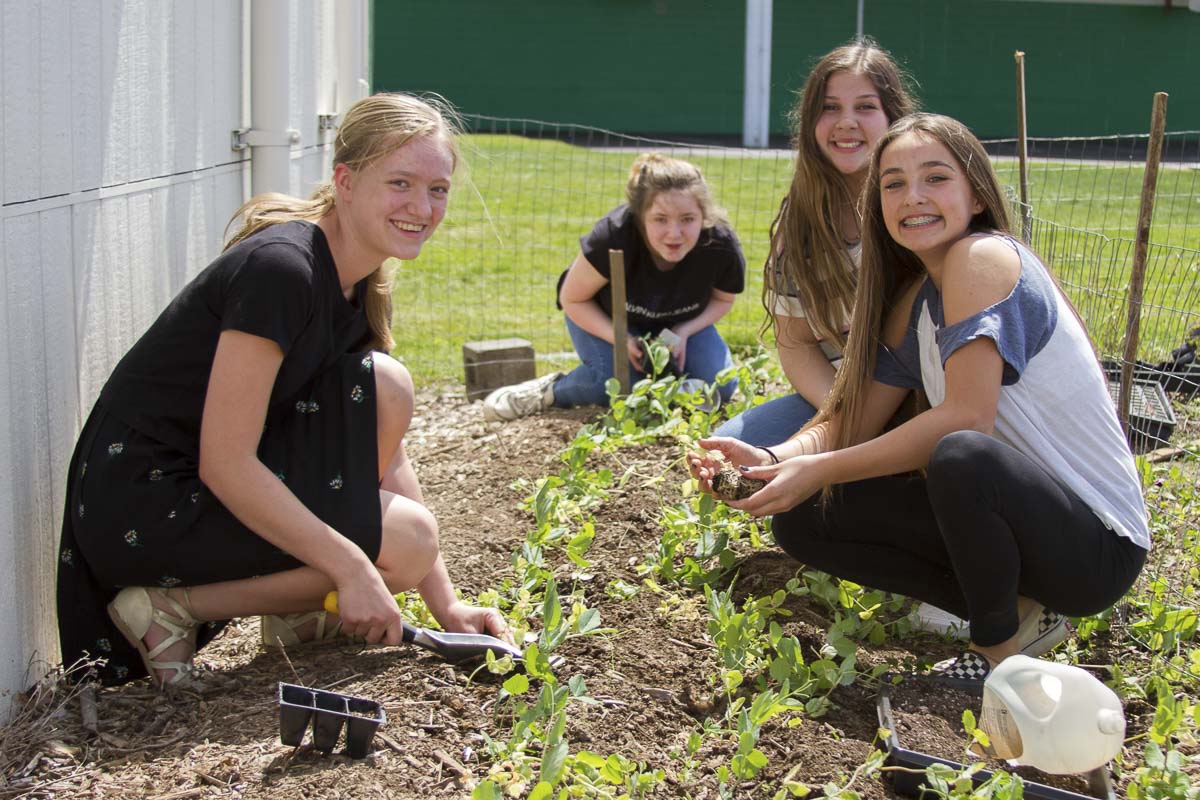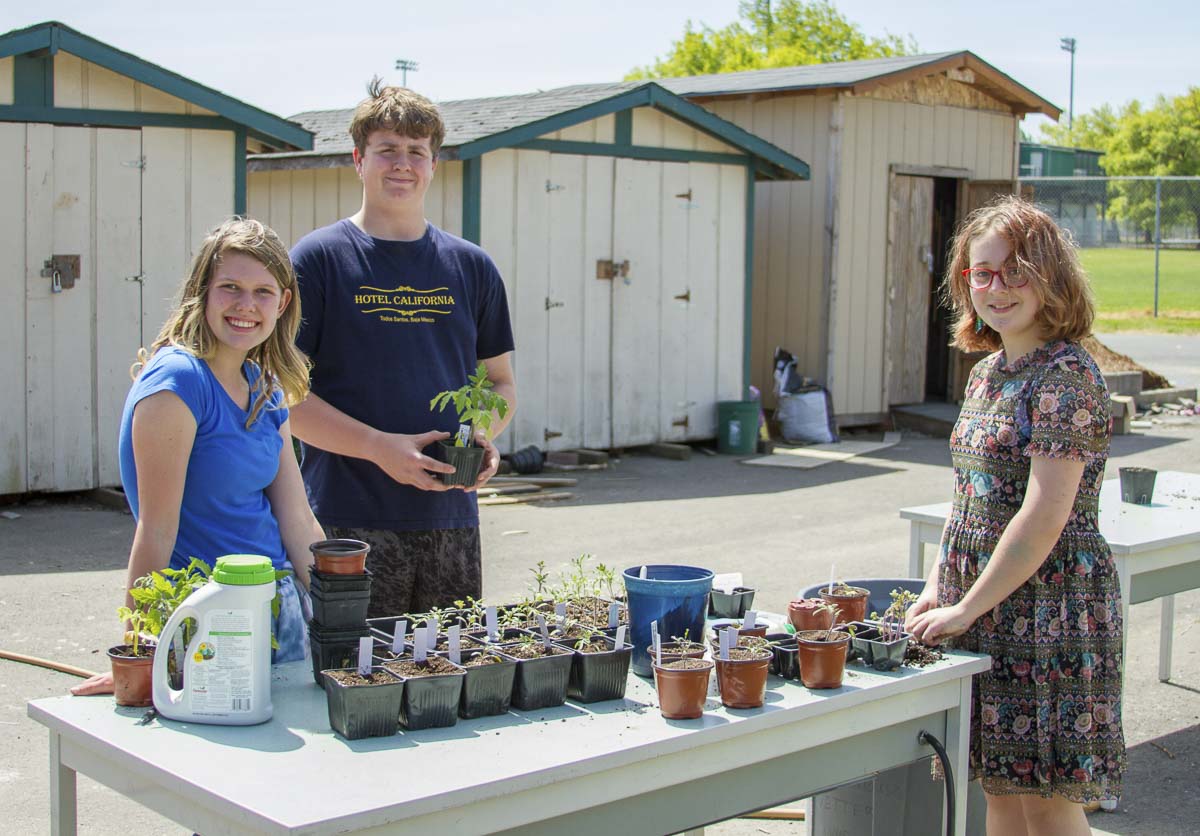Students also make their own herbicides and grow plants from seeds
WOODLAND — Horticulture students at Woodland Middle School learn how to research plant growing requirements; develop their own natural herbicides and pesticides; practice proper seed germination; cultivate soil to ensure healthy plant growth and much more from Joe Bosch, a science and math teacher who has a green thumb in and out of the classroom.

Bosch enjoys inspiring students to discover the love of growing their own plants and maintaining gardens.
“With Woodland’s agriculture background, we have many students who already have a great deal of experience when they start the class,” he said. “However, there’s still so much for students to learn along the way; horticulture is a wide and ever-expanding field.”

Students learn everything that goes into maintaining a proper growing environment, starting by learning which plants actually grow in the Pacific Northwest’s soil and climate.
“Each student gets to review our massive plant catalog and pick one packet of seeds of something they’d like to grow,” explained Bosch. “Sometimes, students choose plants that won’t grow well in our climate but discovering that while trying to nurture a plant is a great way to learn.”

Baker Creek Seeds donates 100 packets of seeds to the class each year, a donation that amounts to several hundreds of dollars worth of seeds.
“We’re incredibly grateful for the support we receive from our partner businesses,” said Bosch. “Without their help, we wouldn’t be able to offer as robust an learning experience as the students receive.”

After picking their plants, students learn how to germinate seeds, repotting the plants into bigger vessels until they grow large enough to be planted in the school’s garden and hardening them before transplanting.
“Since plants cannot go straight from the greenhouse to the ground, the class had to build hardening facilities to help the plants grow strong enough,” said Bosch.
Students also develop their own organic pesticides and herbicides by researching recipes, creating the different solutions and recording test results in their plant journals.

In addition to a wide selection of vegetables and herbs, this year’s class successfully grew a crop of hydroponically-grown tomatoes. Plants grown hydroponically use a specially-designed irrigation and fertilizer system to grow plants without the need of soil. “We’ve been trying to find success with hydroponics for a few years now and we finally made it happen,” said Bosch. “We’ve received a great deal of help from a local company called Indoor Growing Systems who provided all of our equipment and also sends specialists to help us whenever we run into issues, offering suggestions for how we might improve our growing system.”
As the plants grow to the time of harvest, Woodland Middle School’s staff places orders for which plants they would like to take home to their own gardens. Students take responsibility for each staff member’s order, caring for the plants and ensuring to account for every item in the order.
“While some students may only pursue horticulture as a hobby, others will pursue it as a full-time career,” explained Bosch. “There’s no charge to the staff members for plants, but the act of filling orders helps students learn how horticulture works as a commercial enterprise.”

Earlier this spring, the horticulture class worked together with the garden club to plant hundreds of tulips throughout the campus, a learning experience that helped brighten the days of the entire school. Bosch finds that students enter his horticulture classes prepared to experiment.
“Students tend to come to class with a more adventurous feeling,” he explained. “This also offers the opportunity to think outside the box by taking on different projects each year.”
Information provided by Woodland School District.




